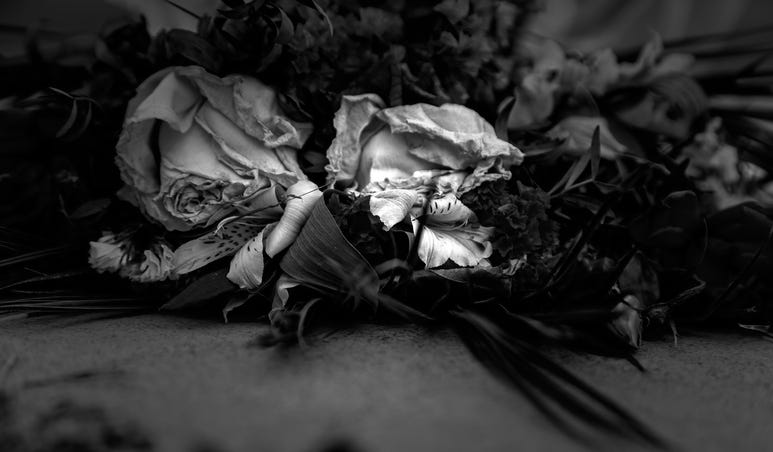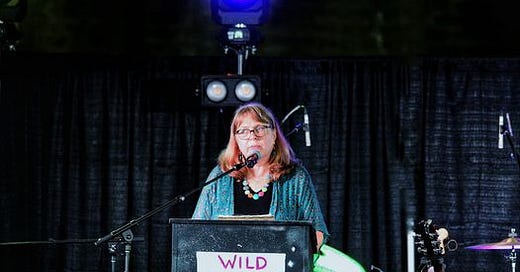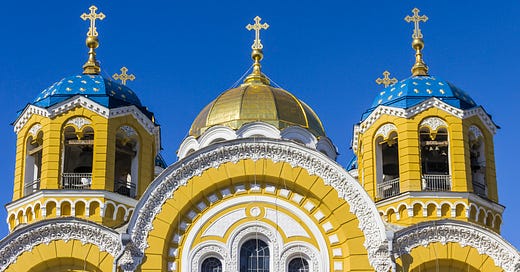

Discover more from The Cottage
The Hamas terrorist attack in Israel left me — as it has so many others — both aghast and numb, shocked into silence from its horror. Its images are now seared into memory, a hellish addition to the history of our times. I am consumed by sorrow.
I don’t know if it is the same for other American Christians around my age or older, but understanding Israel has been uniquely complicated. When I was little, Israel was a very new country. In both public school and Sunday school, teachers taught that it was special, miraculous even, a bulwark of democracy in the fight against communism and a beacon of God’s promise to God’s people. We were the first generation of American children to learn about the Holocaust in school, who had the phrase “Never Again” as part of our vocabulary. In the world of my childhood mainline Protestantism, we were often reminded that Israel remained the “apple of God’s eye,” and that, although Jews were not Christian, they deserved our respect and the full freedoms of religious toleration.
We were by no means free of anti-Jewish stereotypes and tropes. But it is worth noting that not every American Protestant grew up with the wretched theologies that Jews were either Christ-killers or some sort of divine plaything in God’s scheme for the End Times.
It all became much more complex, however, both politically and religiously. Eventually, the plight of the Palestinian people and the flight of Christians from the Holy Land became issues too large to ignore. And the complicity of Christian theology in antisemitism and, eventually, its contributions to the Holocaust, became equally as troubling. How to navigate one’s attitudes and responsibilities toward a political-religious state when both its own injustices and the injustices historically committed against the Jews were both so evident? The conundrum of a nation that seemed to be both victim and victimizer is a kind of gordian knot of cause and effect, blame and shame.
In more recent years, I’ve become friends with a good number of rabbis and Jewish theologians — as well as some Palestinian pastors and religious leaders. Listening to and learning from all of them has been revolutionary to my spiritual life and theological understanding of Jesus, the stories of the Bible, the meaning of justice, and moral practices like Sabbath and hospitality. I’m so grateful.
And I’ve always been struck by the sophisticated way that all of these associates understood Israel — and how similar their political hopes have been for the region. Even though few of them actually know one another, they had all (1) either enthusiastically or grudgingly come to accept the reality of Israel as a nation, (2) believed that the Palestinian people were suffering largely unjustly, and (3) concluded that a two-state (or another similar plan) solution was the best way forward. Not a single person in my network of friends liked conditions in Gaza — nor were they happy with the regular missiles disrupting Israeli communities. And no one approved of or supported either Netanyahu or Hamas. Again, I learned a lot by listening and was surprised by the overall agreement among them.
Even with their nuanced views, however, they did not always share how these goals might be achieved. Policies ideas differ and urgency varies — even while recognizing that complexity and compromise would be necessary. In effect, everyone seemed to agree there were no real solutions. There would only be imperfect choices toward a more just and dignified way of life for all — or, at the very least, many. To put it in more familiar Christian terms for most of my friends, an emerging Niebuhrian realism seemed evident.
And now? Terrorist attacks are designed to not only murder individuals but to kill the possibilities offered by complexity and compromise. Grief-stricken people, the fearful and angry, lose the capacity for much of anything except for the immediacy of pain or revenge (as is our nature). We seek out who or what to blame — to know where to inflict equal pain or cast vengeance.
Searching for blame is particularly dangerous in the midst of violence. For the fog of war is at its thickest when blood is newly spilled. Who is to blame for this week’s horrors? On one hand, the answer is perfectly clear: not the mutilated, raped, or murdered, but rather those who planned the horror, those who carried out the plans, those who picked up guns and knives. No doubt there — there are the killed and the killers.
Beyond that? Some say Israel itself is to blame (frankly, I find this reprehensible), some say it is the fault of Hamas or the whole of the Palestinians. Or is it their respective religions? Or their governments? Maybe it all is Adolph Hitler’s fault? Or the Balfour Declaration? If the later, then surely British colonialism is to blame — or maybe the Ottoman Empire? That’s what historical blame is like. There’s always someone else to blame, another ruler or different regimen, an earlier cause that led to this moment, a nearly infinite chain of human events that leads precisely nowhere except maybe a fictional garden with an apple that never existed.
The blame game is both useless and oddly easy. It deflects attention away from the deeper human calling to wrestle with our sad capacity to turn neighbors into enemies, and how the wrongs inflicted on us so often become the wrongs we inflict on others. In the midst of that struggle, we bear responsibility for our choices — and should be able to recognize that women are not their own rapists and babies cannot be blamed for their own murder.
Perhaps Niebuhrian realism is the best we Christians have got right now. Moral clarity, yes. That the world has, indeed, witnessed utter depravity is not in doubt. But absolute certainty that we understand or know what to do is another matter. All that lies ahead are choices. And binding up the wounds.
Ultimately evil is done not so much by evil people,
but by good people who do not know themselves and who do not probe deeply.
― Reinhold Niebuhr
I pray for your peace in troubled lands, in places where people fear each day, in cities or villages under threat of danger. I pray your peace into the hearts of those who hate, into the minds of those who live in anger, of those who long for revenge. The hot winds of war sweep over so many lives, dear God, terror and cruelty following in their wake, I do not know what else to do, but stand here making my appeal to heaven. Peace I pray. Peace against all the odds, peace without compromise, peace strong and enduring, peace so children never worry as they go to sleep.
— Steven Charleston, Episcopal bishop and citizen of the Choctaw Nation
















Thank you Diana, This is an unspeakably tragic on every level. Your thoughtful and compassionate response gives language to so many of us who are wrestling with stories of utterly disregard of human life, dignity and sacredness. My heart is heavy with the truth that past and continuing acts of violence can and will echo for generations. I appreciate your words that blame is too easily appointed and that the impulse to punish and exact vengeance is indeed human. And yet historically, there is no such thing as redemptive violence. There is only violence and the wounds it leaves for generations. Yes, a tragedy on every level.
I wrote this a few years ago and I think it fits with the conversation.
Pray for Peace
Pray for peace
And stand with justice
For without justice
Peace can’t stand
Pray for peace
And live with mercy
For without mercy
Peace can’t live
Pray for peace
And move in courage
For without courage
Peace can’t move
Pray for peace
And sing your song
For without song
Peace can’t sing
Pray for peace
And breathe out grace
For without grace
Peace can’t breathe
Pray for peace
And be in movement
For without movement
Peace can’t be
Patricia Burlison
©2019